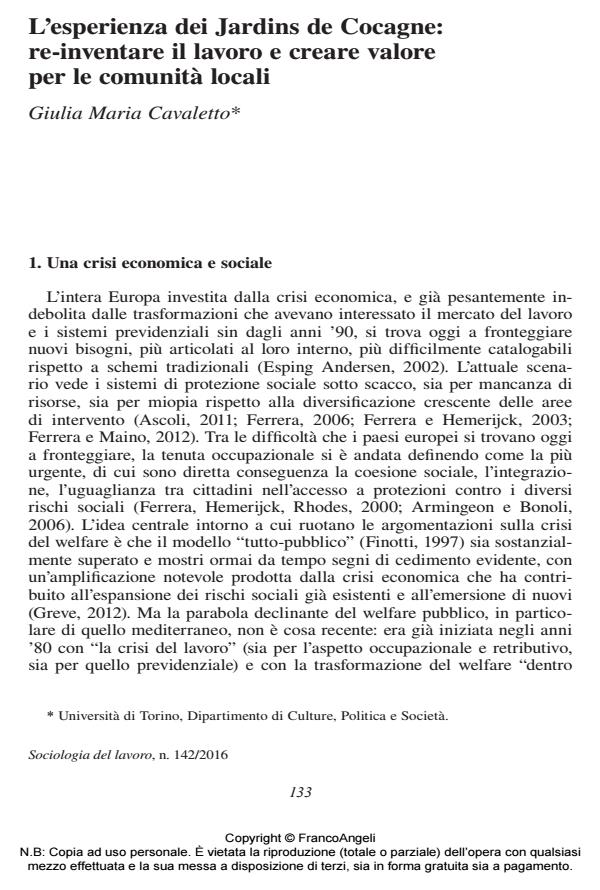The Jardins de Cocagne experience: re-inventing work and creating social value for local communities
Journal title SOCIOLOGIA DEL LAVORO
Author/s Giulia Maria Cavaletto
Publishing Year 2016 Issue 2016/142
Language Italian Pages 14 P. 133-146 File size 102 KB
DOI 10.3280/SL2016-142008
DOI is like a bar code for intellectual property: to have more infomation
click here
Below, you can see the article first page
If you want to buy this article in PDF format, you can do it, following the instructions to buy download credits

FrancoAngeli is member of Publishers International Linking Association, Inc (PILA), a not-for-profit association which run the CrossRef service enabling links to and from online scholarly content.
European countries affected by the economic crisis and weakened by changes in the labor market since the 90’s, are now facing new needs, growing qualitatively and quantitatively, against which social protection systems are inadequate. In this scenario, other actors attempt to integrate and compensate for public welfare that retracts: associations, foundations, social enterprises. This contribution presents, through secondary data and interviews, the French experience of Jardins de Cocagne, agricultural enterprises with social aims; the project is born in the 90’s to offer employment and social inclusion for people with nonlinear biographies; in the last five years these "gardens" have become the place in which "included" persons find relegitimation, despite the crisis. The experience of Jardins is an exemplary case of actors ‘ cooperative capacity within local communities; it is also an example of how to create social value and cohesion through work.
Keywords: Foundation and local development, associations and local development, network governance, crisis of welfare systems, labor market, recession
Giulia Maria Cavaletto, L’esperienza dei Jardins de Cocagne: re-inventare il lavoro e creare valore per le comunità locali in "SOCIOLOGIA DEL LAVORO " 142/2016, pp 133-146, DOI: 10.3280/SL2016-142008